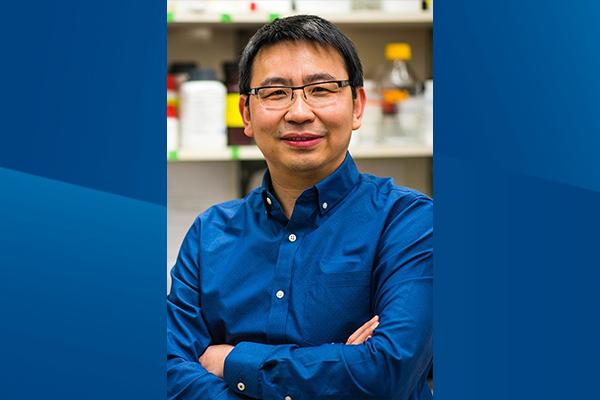
The National Institutes of Health’s National Institute of Neurological Disorders and Stroke (NINDS) has awarded Duke Anesthesiology’s Wei Yang, PhD, FAHA, a two-year $442,750 R21 grant for his project titled, “Targeted Neuromodulation to Enhance Recovery of the Aged Brain After Ischemic Stroke.”
Ischemic stroke is a leading cause of long-term disability worldwide, especially in the aging population. Current treatment relies primarily on restoring blood flow acutely after stroke. However, such acute therapy is applicable only to a small fraction of patients, and even among these patients, many still suffer life-long neurologic deficits. Millions of stroke survivors live in the United States, and most have residual impairment. Thus, there is an urgent need for new recovery-enhancing stroke treatments.
During the chronic stroke phase, spontaneous improvement of neurologic function often occurs, which involves endogenous restorative processes, particularly neuronal plasticity. Consequently, neuromodulation strategies to augment these processes have been explored in the clinic to help increase the level of independence of stroke survivors. However, clinical trials evaluating various neuromodulation strategies to enhance stroke recovery have shown inconsistent results, highlighting the deficiency in our understanding of the fundamental drivers of neurorestoration after stroke.
In this project, Dr. Yang’s team will use state-of-the-art approaches to investigate the role of neuronal activity in the chronic stroke recovery phase via a detailed dissection of mechanisms at cellular and network levels in aged mice. Obtaining such knowledge is expected to not only provide new insights into stroke disease mechanisms, but to also inform future development of novel, efficacious neuromodulatory therapeutics for stroke patients.
This research is the result of collaborative work with Drs. Huaxin Sheng, Dennis Turner (Duke Neurosurgery), and Junjie Yao (Duke Biomedical Engineering), who all are members of Duke Anesthesiology’s Multidisciplinary Brain Protection Program (MBPP). The mission of MBPP is to discover novel and effective therapeutic strategies of brain protection and recovery through a deep mechanistic understanding of the pathophysiology that underpins brain disorders.